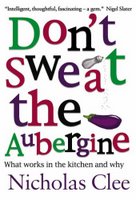Little Women : their father's war
Also in today's blog
Bookworld España catalogue
The answer to Horace Bent's question
Where are they now?
Reader mail from South Africa
"slaving over a word-processor"
This week our friendly Spanish postman delivered a 66-page publication called The Bookworm. It is the second edition of the new mail-order catalogue and magazine of Bookworld España, a company which now has eight bookshops on two of Spain's best-known coasts, the Costa del Sol and the Costa Blanca.
The director of Bookworld España, James Ross, tells me that the company's website should be online in about a month and I'll blog about that in due course. Meanwhile I've been reading the interviews in The Bookworm and looking at the titles selected.
One of these reminded me of a column published in The Bookseller on 11 August 2000 which had an unexpectedly strong response from the magazine's women readers. Here's what I wrote then.

"Louisa May Alcott's Good Wives, the sequel to Little Women, seems tediously sanctimonious to me today. But, when I was about 12, the chapter called "Literary Lessons" showed me a way to augment my meagre pocket money.
The book is about four New England sisters living in genteel poverty in the period following the American Civil War (1861-65). I identified with Jo, the bookish tomboy, who wrote a story that paid for a seaside holiday for her mother and invalid sister. Inspired by her, at 15 I earned my first two "delightful cheques", and it was Jo's dealings with newspaper editors that steered me towards journalism, a career that would never have been suggested by my family or school.Simone de Beauvoir, author of the existentialist classic The Second Sex, first published in the UK by Cape in 1953, was also deeply influenced by Jo and upset that the friendship, begun in Little Women, with Laurie, the rich boy next door, did not lead to their marriage. There are various editions of Alcott's books in print and Websites devoted to her. At one of them, I found a vigorous discussion on the subject - did Laurie and Jo belong together?
Curious to know if UK readers held equally strong views, I asked Horace Bent, diary columnist of The Bookseller, if he would help me find out. He published the question, "Should Jo have married Laurie?", in Bent's Notes on 7th May. Answers started arriving the same day. Among the "no" votes, an amusing comment came from Jennifer Ellis, sales and marketing director at Darton, Longman & Todd, who e-mailed: "She'd have bullied him all the time and he would have ended up killing her! Of course this would have made a much better ending than the one Alcott came up with. P.S. My sister and I were arguing about Little Women only last week."
So far only three people have voted "yes": Maggie Pringle of the Daily Express, Helen Carr of O'Brien Press and author Donna Baker, who takes the view that, eventually, after Jo's much older husband Professor Bhaer died, Laurie "left the awful Amy to a selfish and gin-sodden old age (though with plenty of money because he's not a cad) and he and Jo went off travelling through the Rockies, camping, canoeing and doing all the things they should have done in the first place."
Donna is the chairman of the Writers Summer School at Swanwick, and tells me: "One of our speakers this year, Nick Daws, comes directly from my reading your review in the Author of his book Internet for Authors [Internet Briefing, £16.99, 1840253088}."

I was reminded of that article, and the number of women in the British publishing world who responded, by seeing the cover of March : A Love Story in a Time of War in the Bookworld España catalogue. The novel is described thus
"Set during the American Civil War, this is the story of John March, the father of the girls in the classic novel "Little Women". March has to find a way to reconnect with a wife and daughters who have no idea of the ordeals he has been through. From the author of the acclaimed "Year of Wonders".

At HarperCollins I found an interview with Geraldine Brooks, the author of March.
Asked "With March were you ever daunted by taking on a classic, albeit tangentially?" Geraldine Brooks, an Australian who started her career as a journalist and now lives in America, said,
"No, because I made a fast rule for myself that I would only go where Louisa May Alcott had chosen not to go. My book overlaps with Little Women only once, at the very end, when I switch the point of view for Mr March's homecoming. The rest of the time I have stayed well away from Louisa's world and simply tried to add some darker adult resonances in the voids of her sparkling children's tale."
There's an extract from the novel on the publisher's website but it's in PDF [Portable Document Format] which I greatly dislike so, as I shall be buying the book, I didn't read the extract.
Where are they now?
What, in the intervening five and a half years, has happened to the women who responded to the question put on my behalf by Horace Bent?
The only one I've had time to track down is Helen Carr who, having thought at first that she wasn't the Helen I was looking for, then emailed, "Oh, yes! That is me! I had completely forgotten about that. Back in 2000 I was receptionist & editorial administrator for O'Brien Press. Now, having worked for another publisher as first editor and then managing editor in between, I've been back with O'Brien for the past six months as an editor. I'm a general editor, I work on adults' & children's fiction & non-fiction."
Reader mail from South Africa
"Dear Anne You may not remember me - I e-mailed a few years back from our Game Ranch in Zululand, basically to say how much pleasure your books had given me over the years. I think I also bemoaned the fact that times had changed from our generation with love scenes being far more explicit these days than they were in the 50/60s! You may recall that I said how pleased I was that you had made the transition tastefully. A great deal has happened since I last emailed you….
….Anyway, that's not the reason that I've been prompted to e-mail you again. I was in the library a few days ago and at the large print edition shelves (Ulverscroft), I happened to spot your book The Doctor's Daughters. You may recall I mentioned that it was the first of your stories I ever read, published in Woman's Weekly. I simply couldn't resist taking it out and reading it again. Ah Anne - what can I say? What lovely memories it brought back to me of a gentler, sweeter, kinder, more gracious time! Reading about Rachel treating herself to a frivolous little hat and gloves (my daughters and granddaughters would probably shriek with mirth at the very idea of hat and gloves), to listening to the wireless, to cycling to the shops - it all filled me with nostaligia and sadness (not for the past but for what we've lost!).
Well my dear, I shan' t go on in this vein or I'll be resorting toWordsworth'sIntimations of Immortality ......
Though nothing can bring back the hour
of splendour in the grass
of glory in the flower,
we will grieve not, rather find
strength in what remains behind.
Kind regards - Rue Conradie
Perhaps I should add that The Doctor's Daughters was published in 1962 and the characters in my more recent books have moved with the times.
"slaving over a word-processor"
Recently, Grumpy Old Bookman wrote -
"First, I sense that many writers are deeply frustrated by the fact that they are not able to do the job on a full-time basis. But if my experience is any guide, fitting some writing into a working week is by no means impossible. And, even on the basis of 4 or 5 hours a week, it is not impossible to work on a long project such as a book.
Secondly, even if you do win the pools, or suddenly get given a contract which is sufficiently valuable to allow you to give up the day job, you may find that the number of hours which is available for writing in a given week does not, somehow, increase in quite the dramatic way that you might have thought.
What you may find is that that slaving over a word-processor, without any kind of human contact, for eight or more hours a day, is a profoundly unsatisfactory way to live your life.
Grumpy Old Bookman is one of my favourite bloggers. From Monday to Friday, his opinions are among the pleasures of my lunch break. But sometimes I disagree with his views.
When not travelling in search of locations for books, I've spent most of my life in eight-hour days alone at a keyboard, writing fiction, and feeling sorry for people with less enjoyable occupations. Even now, at an age when most people are retired, I get up at 6.45 a.m. to spend a couple of hours online before breakfasting with Mr Bookworm whose days are mostly spent out of doors in the mountains. In spite of the difference in our daytime activities, we still spend at least 60 hours a week discussing the news, the books we're reading, our shared past, our plans for the future. That seems to me a profoundly satisfactory way to spend a life.
 Although, after reading Nicolas Clee's article "Death of the midlist" in the March 10 issue of The Bookseller, I suspect that not many people are going to enjoy being full-time writers in future.
Although, after reading Nicolas Clee's article "Death of the midlist" in the March 10 issue of The Bookseller, I suspect that not many people are going to enjoy being full-time writers in future.Nicholas Clee's cookery book came out last October, a month too late for me to order it from one of my realworld bookshops in Guernsey. I shall buy it for my birthday in June. There are several good reviews at Amazon UK, but the one I particularly like is
"Quite brilliant in the sheer practicality and readability. My 86 year old mother who has been cooking for eighty years found that she learned several things from it. As a relatively novice cook it encourages me to try all sorts of things I would never have considered. Not only does the author tell you what to do but he also explains why it needs to be done. All this and filled with humour. Unconditionally recommended."
Nicholas's wife, Nicolette Jones, a former Publishing News staffer has a biography of Samuel Plimsoll coming out in June. He was a Victorian Member of Parliament "who battled to protect merchant sailors from rapacious ship owners who overloaded their often unseaworthy vessels, sending countless seamen, and passengers, to their watery grave."
More about both books later in the year. Meanwhile, if you have comments, hit the comment button or email anne@anneweale.com
